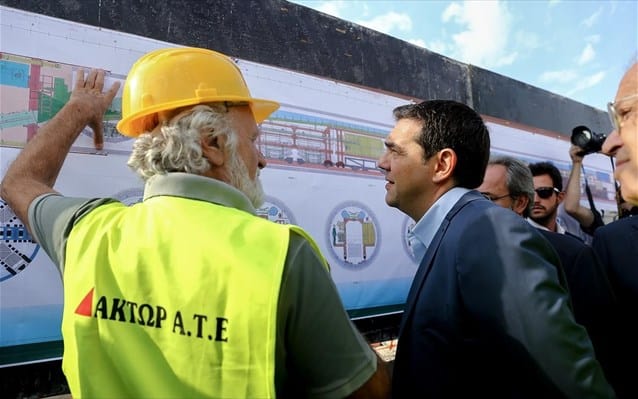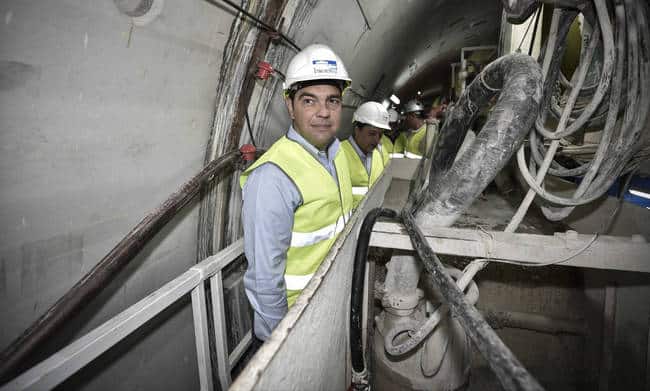
Greece’s Prime Minister Alexis Tsipras launched the first completed section of the now 95% completed metro train network of Thessaloniki on Saturday.
During his address at the completed station at ‘Sintrivani-Ekthesi’ Tsipras noted that the long overdue metro had now ceased to be the "best-known joke” about the city and was very close to becoming a reality with 95% of works completed.
"We are proud because we are completing a holistic plan for Thessaloniki's urban transport using all available means," Tsipras said, noting that all of the main metro line to the railway station will go into operation, while the extension to Kalamaria will be added a few months later.
The Prime Minister noted that the testing of the lines and trains will begin in the first half of 2019 and that Thessaloniki’s citizens will be in a position to use the system “ not at the end of 2020 but by February 2020”.
Harking back to the obstacles that had beleaguered the project, he said a “different point of view" had made it possible to both complete the metro and protect cultural heritage.
"I cannot help remembering the images of the project I encountered as Prime Minister when we took over the project in early 2015: deserted work sites, metal sheeting erected all over the city, major disagreements on how to solve technical issues, legal complications, claims for incredible compensation for delays, exceeding the budget for the project itself..." he said.
A difficult negotiation had followed and a settlement of 188 million euros was finally reached for claims that had originally amounted to 1.1 billion euros, saving 900 million euros of the tax-payers' money, he added.
The work itself had stopped, meanwhile, and was holding back the growth of the entire city, creating problems instead of solving them, Tsipras pointed out.

Not only had work resumed but it was now progressing at a much faster rate than might have been imagined, when compared to the pace before the present government took over, he said. Tsipras noted that this was due to another way of doing and looking at things that eliminated the "pseudo-dilemma that said we could either have antiquities or the metro," enabling the city to have both.
The Prime Minister said that Thessaloniki was becoming an international centre and a modern European city in the Balkans, whose transport infrastructure will be further boosted by the electrically-powered rail line from Athens to Thessaloniki, which will cut down the journey time to 3 hours 17 minutes, a electric rail line from Thessaloniki to Idomeni, links between its port with those of the Black Sea, the Menemeni transport projects and others being planned further in the future.
"When we talk about an urban transport network in a major and modern European city like Thessaloniki, the main solution is the metro and suburban railway," Tsipras said, noting that the ultimate aim was to extend the metro system from the airport to the city's western suburbs and for the suburban railway to link areas adjacent to the Thessaloniki regional unit.
The Prime Minister also noted measures taken to restore the city's troubled bus company OASTH, and promised to take steps to meet the city's immediate needs until the metro system was up and running.
Among these, he announced the creation of a new transport company ASYTH in February that will be in charge of the entire transport network, including the metro, a tender to procure 350 new low-pollution buses, upgrades of bus depots and the redesigning of transport lines to improve services, as well as the hiring of new drivers and other staff.

